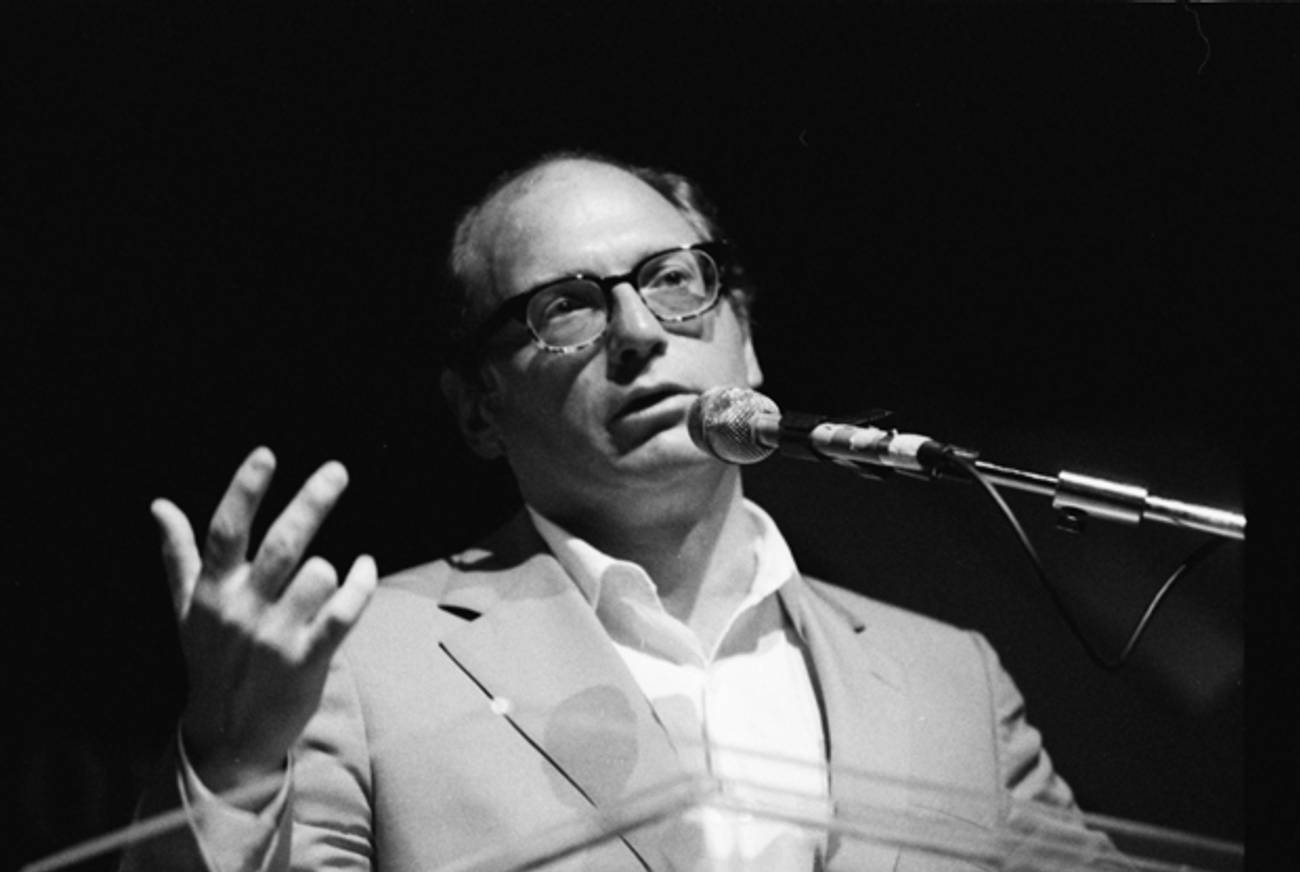Oscar Hijuelos’ Yiddishe Neshama
The Pulitzer Prize-winning Cuban-American novelist, who died last week, wrote meaningfully about Judaic scripture and the Holocaust




Inevitably and understandably, virtually every obituary of the novelist Oscar Hijuelos mentioned his Cuban ancestry in the first sentence. The Pulitzer Prize-winning author, who died last weekend, was the son of two Cuban immigrants to New York. The overarching theme in his body of work, rendered most vividly perhaps in The Mambo Kings Play Songs of Love and Empress of the Splendid Season, explored the newcomer’s quest for an American home and simultaneous yearning for a vanished Cuban past.
Yet Oscar Hijuelos, a deeply knowledgeable Roman Catholic, also possessed a yiddishe neshama, a Jewish soul. In his novels Mr. Ives’ Christmas and A Simple Habana Melody, he wrote meaningfully about Judaic scripture and the Jewish tragedy of the Holocaust. And throughout his writing life, he felt a strange tug of Jewish identity.
When I interviewed Hijuelos in 2003 for the Jerusalem Report, he recalled a discussion with his cousin Sarah. “She said to me we probably have Jewish ancestors going back,” he recounted. “The name Hijuelos is a hard one to track down. And there’s a whole side of my family that looks very Semitic. I was intrigued by the idea I could have some Sephardic blood, even if it’s centuries old. A converso somewhere, generations back. My cousin got me thinking about identity and how one is defined by a name, by an appearance. As Carlos Fuentes once said, there’s not a Spaniard walking around without these roots.”
Whether or not DNA truly connected Hijuelos to Jewish forebears, his artistic empathy allowed him speak by inference to the Jewish condition. All the more impressively, he did so while remaining true to his Cuban milieu. He never chose the cheap trick of cultural appropriation; rather, by being specific to the world he knew best, he transcended its parochial bounds.
Mr. Ives’ Christmas, despite its yuletide name, is the Book of Job transposed to the novelist’s favorite setting: the working-class, ethnically mixed enclave along Claremont Avenue in Morningside Heights during the postwar years. Hijuelos’s Job is Edward Ives, a commercial artist whose teenage son Roberto is an altar boy planning on entering the priesthood. Ives’s misery begins when Roberto is killed outside his parish church by the kind of thug known back then as a “juvenile delinquent.” Depression, marital strain, terrible skin rashes—all afflict Ives in the decades that follow. Like his Biblical model, he strains to hold onto faith in a divine order that seems to have betrayed him.
The ontological questions loom even larger in A Simple Habana Melody. The novel centers on a Cuban Catholic with a Jewish lover and seemingly Jewish name, Israel Levis, who is living in Paris as a composer when the Germans invade. They register Levis as a Jew, require he wear a yellow star, and ship him off to Buchenwald, where his tortures include playing his hit song “Rosas Puras” (“Pretty Roses”) for the amusement of Nazi officers.
At once respectful of and intimidated by the Jewish experience during the Holocaust, Hijuelos set very few pages of Habana Melody in Buchenwald. Rather than try to describe its horrors, he simply writes of Levis as he is sent to the camp, “[F]or the next fourteen months, the maestro did not believe the things he saw, nor the sounds he heard.” The novel gathers its impact instead by means of counterpoint, as Hijuelos presents a reader with three iterations of Levis—in the prewar years as the gifted musician, grown literally and metaphorically fat on his talents; during the Nazi occupation as the naïf too gradually awakening to the danger around him; and after the war as a shattered specimen.
The descriptions of Levis returning to Havana in 1947 spare nothing. He haunts the pages, gaunt, bearded, prematurely gray, devoid of hunger or passion, fearful “he would never compose another piece of music again.” When the household radio catches his famous “Rosas Puras,” he switches it off; he rejects offers to write for orchestras and film soundtracks. Devout before the war, when he goes to church in its aftermath, “He would sit for hours in a back pew, under the high ceilings, surrounded by columns, stunned that he now felt nothing at all.”
Several prominent reviewers castigated Hijuelos for what they termed an impossibly schematic plot. In fact, Hijuelos had modeled Levis on an actual Cuban songwriter, Moises Simons, who had gone through the same process of mistaken identity and persecution as the fictive Levis. Hijuelos also drew subtly on the several survivors he had known during his formative years—one the baker at a summer camp where Hijuelos was a counselor, another a female colleague in an ad agency where he wrote copy. As Hijuelos recalled of her in my interview, she was given to sobbing in the middle of the day, particularly at any show of kindness.
Only a person of Hijuelos’s creative gifts and deep spirit, though, could have put these pieces of grim inspiration to such profound use. “I’m always asking, ‘Where’s God? Is there justice in the world?’” Hijuelos told me. “People in the 13th century said God died with the coming of the plague. But for me, like other people, God died in the Holocaust.”
Samuel G. Freedman, a regular contributor to Tablet, is the author most recently of Breaking The Line: The Season in Black College Football That Transformed the Game and Changed the Course of Civil Rights.
Samuel G. Freedman is a journalism professor at Columbia University and a regular contributor to Tablet. He also writes the “On Religion” column for The New York Times.